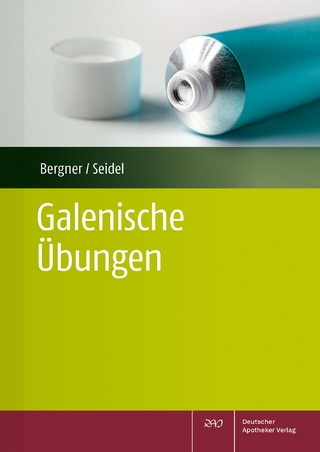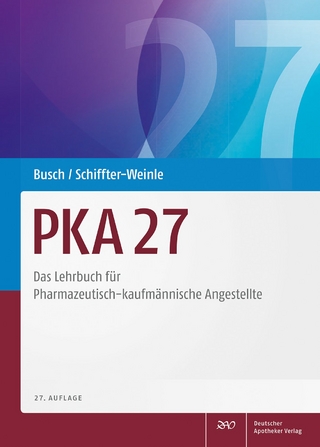
Recent Advances of the Fragment Molecular Orbital Method
Springer Verlag, Singapore
978-981-15-9234-8 (ISBN)
This book covers recent advances of the fragment molecular orbital (FMO) method, consisting of 5 parts and a total of 30 chapters written by FMO experts. The FMO method is a promising way to calculate large-scale molecular systems such as proteins in a quantum mechanical framework. The highly efficient parallelism deserves being considered the principal advantage of FMO calculations. Additionally, the FMO method can be employed as an analysis tool by using the inter-fragment (pairwise) interaction energies, among others, and this feature has been utilized well in biophysical and pharmaceutical chemistry. In recent years, the methodological developments of FMO have been remarkable, and both reliability and applicability have been enhanced, in particular, for non-bio problems. The current trend of the parallel computing facility is of the many-core type, and adaptation to modern computer environments has been explored as well. In this book, a historical review of FMOand comparison to other methods are provided in Part I (two chapters) and major FMO programs (GAMESS-US, ABINIT-MP, PAICS and OpenFMO) are described in Part II (four chapters). dedicated to pharmaceutical activities (twelve chapters). A variety of new applications with methodological breakthroughs are introduced in Part IV (six chapters). Finally, computer and information science-oriented topics including massively parallel computation and machine learning are addressed in Part V (six chapters). Many color figures and illustrations are included. Readers can refer to this book in its entirety as a practical textbook of the FMO method or read only the chapters of greatest interest to them.
Yuji Mochizuki, Dr. Sci., Professor, Rikkyo University Yuji Mochizuki received his Ph.D. degree in quantum chemistry in 1990 from Hokkaido University. He worked at the NEC Corporation (1990–1997) and JapanAtomic Energy Research Institute (1997–2003). Then, he started the code development works and related applications of the FMO method with theABINIT-MP program at the University of Tokyo (2003–2006). Currently, he is a Professor of chemistry at Rikkyo University. His research interests are spread over multiscale simulations, machine-learning analyses of calculated results, and high-performance computing, besides the development of ABINIT-MP. Shigenori Tanaka, Dr. Sci., Professor, Kobe University Shigenori Tanaka received his Ph.D. in theoretical physics in 1986 from the University of Tokyo. He worked as a Research Associate at the University of Tokyo and later as a Researcher at the Toshiba Research and Development Center. Meanwhile, he worked at the California Institute of Technology in 1995–1996 as a Visiting Researcher. Since 2004, he has been a Professor at Kobe University. His primary research interests are the development of first-principles computational methods for biomolecular systems and their applications for bottom-up modeling of biological phenomena. Kaori Fukuzawa, Dr. Eng., Associate Professor, Hoshi University Kaori Fukuzawa received her M.S. in quantum chemistry from Rikkyo University in 1997 and Ph.D. in applied quantum chemistry from the University of Tokyo in 2001. She worked at the Mizuho Information and Research Institute (2000–2014) and Nihon University (2014–2016). She has been an Associate Professor at Hoshi University since 2016. Her research interests include application of quantum chemistry for in silico drug discovery, computational structural biology, and understanding chemical phenomena of biomolecular systems.
Part 1: Positioning of FMO.- Fragment molecular orbital method as cluster expansion.- Comparison of various fragmentation methods for quantum chemical calculations of large molecular systems.- Part 2: Programs.- Recent development of the fragment molecular orbital method in GAMESS.- The ABINIT-MP program.- PAICS: Development of An Open-Source Software of Fragment Molecular Orbital Method for Biomolecule.- Open-Architecture Program of Fragment Molecular Orbital Method for Massive Parallel Computing (OpenFMO) with GPU Acceleration.- Part 3: Pharmaceutical activities.- How to perform FMO calculation in Drug Discovery.- FMO drug design consortium.- Development of an automated FMO calculation protocol to construction of FMO database.- Application of FMO to ligand design: SBDD, FBDD, and protein–protein interaction.- Drug Discovery Screening by Combination of X-ray Crystal Structure Analysis and FMO Calculation .- Cooperative study combining X-ray crystal structure analysis and FMO calculation: Interaction analysis of FABP4 inhibitors.- Application of FMO for protein-ligand binding affinity prediction.- Recent Advances of In Silico Drug Discovery: Integrated Systems of Informatics and Simulation.- Pharmaceutical Industry - Academia Cooperation.- Elucidating the efficacy of clinical drugs using FMO.- Application of Fragment Molecular Orbital Calculations to Functional Analysis of Enzymes.- AnalysisFMO toolkit: A PyMOL plugin for 3D-visualization of interaction energies in proteins (3D-VIEP) calculated by the FMO method.- Part 4: New methods and applications.- FMO interfaced with Molecular Dynamics simulation.- Linear Combination of Molecular Orbitals of Fragments (FMO-LCMO) Method: Its Application to Charge Transfer Studies.- Modeling of solid and surface.- Development of the analytic second derivatives for the fragment molecular orbital method .- The FMO-DFTB Method.- Self-consistent treatment of solvation structure with electronic structure based on 3D-RISM theory.-New methodology and framework.- New methodology and framework Information science-assisted analysis of FMO results for Drug Design.- Extension to multiscale simulations.- FMO-based investigations of excited-state dynamics in molecular aggregates.- Application of the fragment molecular orbital method to organic charge transport materials in xerography: a feasibility study and a charge mobility analysis.- Group molecular orbital method and Python-based programming approach.- Multi-level parallelization of the fragment molecular orbital method in GAMESS.
| Erscheinungsdatum | 15.01.2021 |
|---|---|
| Zusatzinfo | 231 Illustrations, color; 38 Illustrations, black and white; XI, 616 p. 269 illus., 231 illus. in color. |
| Verlagsort | Singapore |
| Sprache | englisch |
| Maße | 155 x 235 mm |
| Themenwelt | Medizin / Pharmazie ► Pflege |
| Medizin / Pharmazie ► Pharmazie ► PTA / PKA | |
| Naturwissenschaften ► Biologie ► Biochemie | |
| Naturwissenschaften ► Chemie ► Physikalische Chemie | |
| Naturwissenschaften ► Chemie ► Technische Chemie | |
| Technik | |
| ISBN-10 | 981-15-9234-9 / 9811592349 |
| ISBN-13 | 978-981-15-9234-8 / 9789811592348 |
| Zustand | Neuware |
| Informationen gemäß Produktsicherheitsverordnung (GPSR) | |
| Haben Sie eine Frage zum Produkt? |
aus dem Bereich


